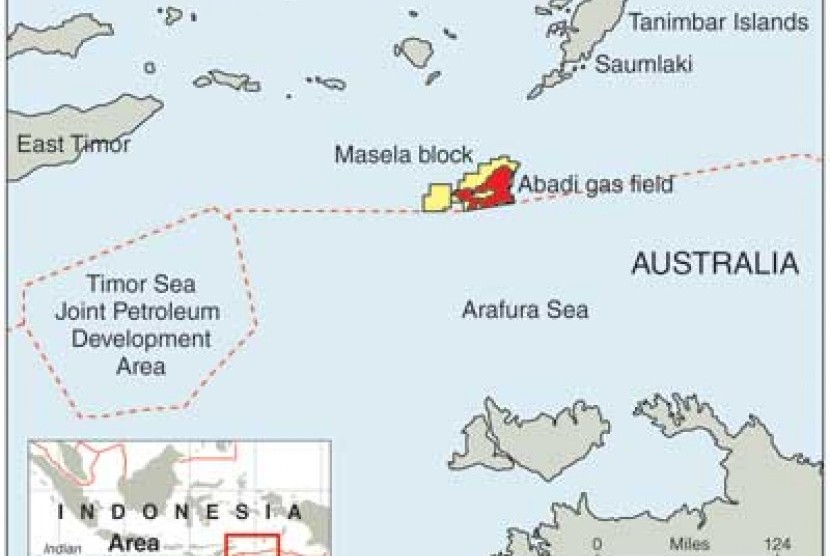REPUBLIKA.CO.ID, Jakarta -- Coordinating Ministry for Maritime Affairs has expressed concern that the contractors currently managing the Abadi field in Masela block, Arafura sea, Maluku, might abandon the mining site.
Expert Staff for Energy of the Coordinating Ministry for Maritime Affairs Haposan Napitupulu voiced his concern that Inpex Corporation and Shell Upstream Overseas, the two contractors operating in Masela block, would likely pull out.
"I am concerned as (they) have found large reserves (in Masela). It could not be easily abandoned," Napitupulu stated here on Friday.
This especially holds true for Inpex, a Japanese oil and gas company, which has been operating since long in Indonesia and has high interest to participate in other blocks, Napitupulu affirmed.
A similar opinion was also shared by the minister's Expert for Energy Policy, Coordinating Ministry for Maritime Affairs Abdulrachim who stated that the two companies have invested some US$1-2 billion to operate their projects in the Masela block since 1998.
"However, they have not received any returns as the invested money could only be recovered once the production begins. Their funds are stuck, so they are less likely to leave," he explained.
He suggested that it was better to reach an immediate and efficient decision concerning the management of Masela block, following the cost difference between setting up onshore and offshore refineries submitted by the contractors to the ministry.
The contractors have estimated that the onshore refinery cost reaches some US$14.8 billion while the offshore cost is just some US$19.3 billion.
In contrast, the study conducted by the ministry revealed no major difference in cost, with US$22 billion for building the onshore refinery and US$16 billion for the construction of the offshore floating refinery.
Moreover, the government needs to consider the dual impacts of these two management schemes.
"The floating construction will only produce LNG. There will be no opportunity to develop petrochemical and other industries, while the onshore facility will open up opportunities to develop them and absorb more labor force from Maluku," Abdulrachim added.


